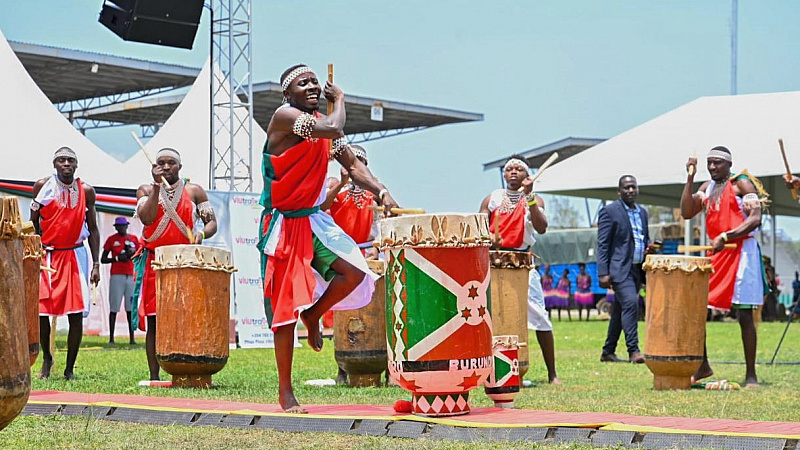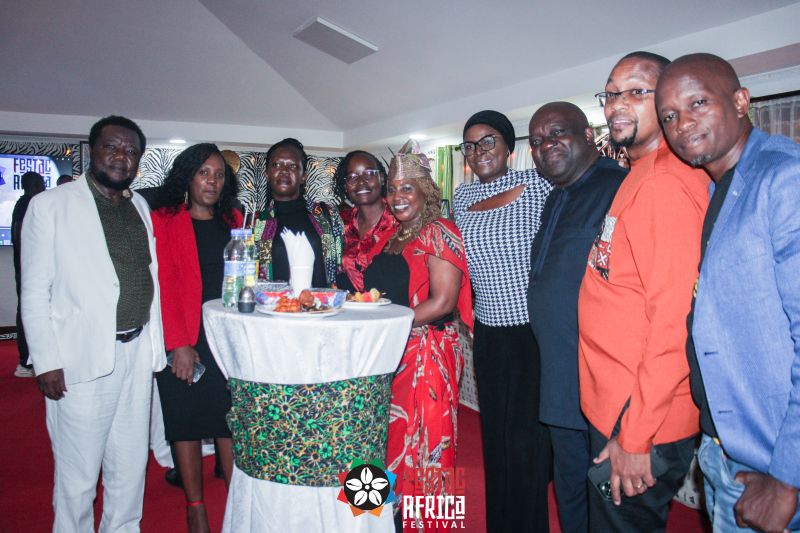Festac Festival in Kisumu is a pan-African cultural festival that celebrates African identity through music, dance, visual art, fashion, food, and dialogue. Held annually in Kisumu, Kenya, it draws artists, performers, and visitors from across Africa and the diaspora.
Originally inspired by the Festival of Arts and Culture (FESTAC) first held in Lagos in 1977, Kisumu’s Festac revives that spirit of unity and cultural pride in a modern Kenyan setting.
Also Read:Exploring Kenyan Cultural Experiences: Traditions & Heritage Tour
A Detailed Explanation of Festac in Kisumu
Festac in Kisumu goes beyond performance. It’s a living platform where African traditions meet current social themes. You’ll see cultural exhibitions, open-air concerts, and panel discussions. The event promotes cultural expression and cross-border collaborations. It’s inclusive, open to all, and strongly anchored in celebrating heritage.
Why Kisumu?
Kisumu is a fitting location. As a port city on Lake Victoria, it holds cultural weight for the Luo community and Kenya at large. It’s accessible and scenic, with local support from the county government and community. The festival boosts tourism and places Kisumu on the cultural map of Africa.
When and Where It Happens
Festac is typically held in December. The exact dates vary, but the event spans 3–5 days. Venues include Jomo Kenyatta Sports Ground, Dunga Beach, and Maseno University. These public spaces make the festival visible and inclusive.
What You Can Expect at Festac Kisumu
1. Live Performances
You’ll enjoy music and dance from across Africa. Expect:
- Traditional drumming and Luo dances
- Afrobeat and hip hop acts
- Gospel choirs
- Poetry slams and spoken word
It’s common to see young artists share stages with veterans, creating a blend of modern and traditional rhythms.

2. Art Exhibitions
Artists showcase works that reflect identity, resistance, and beauty. Mediums include:
- Painting
- Sculpture
- Photography
- Graffiti
Each piece tells a story. Some pieces explore history. Others question social norms. All demand attention.
3. Cultural Workshops
Workshops are open to all. You learn:
- Traditional crafts
- Music instruments
- Storytelling techniques
- African history and literature
These workshops empower the youth and connect generations.
4. Food Markets
Festac is a chance to taste the continent. Vendors sell:
- Nyama choma
- Ugali and sukuma wiki
- Ethiopian injera
- Senegalese jollof rice
Food is culture. Each plate tells a regional story. It’s also affordable, so everyone eats.
5. Fashion Shows
You’ll see designers from Kenya, Nigeria, Ghana, and more. They showcase:
- Ankara prints
- Maasai beads
- Modern Afro-urban wear
Models strut to Afrobeat as cameras click. The message is clear: African fashion is bold and global.
The People Behind Festac Kisumu
Festac Kisumu is organized by Lake Basin Arts and Cultural Festival Association (LBACFA) with backing from Kisumu County Government, artists’ unions, and pan-African networks.
The team works year-round. They plan logistics, recruit artists, and manage funding. Volunteers handle crowd control, guest services, and social media coverage.
Who Should Attend?
- Artists: Showcase work, build networks, get exposure.
- Cultural Enthusiasts: Learn, observe, and immerse yourself.
- Tourists: Explore Kisumu and enjoy authentic African culture.
- Academics: Attend forums on history, culture, and identity.
- Youth: Engage in mentorship, art, and creative sessions.
Festac is for everyone. Whether you’re a traveler or local, student or elder, there’s something here for you.

Festac Kisumu’s Economic Impact
The festival creates jobs:
- Vendors earn from food, crafts, and souvenirs.
- Hotels see full bookings.
- Local transport thrives.
- Youth get temporary gigs: photography, social media, ushering.
It’s more than a party. It’s an economic catalyst for the region.
Safety and Accessibility
Festac is safe. Organizers work with local police and health services. There are clear entry points, medical tents, and crowd control plans. You’ll find signs, maps, and volunteers to guide you.
It’s also family-friendly. Daytime events are designed for all ages. Spaces are accessible for people with disabilities.
How to Prepare for Festac
- Book Early: Hotels fill up quickly in Kisumu.
- Stay Hydrated: December heat can be intense.
- Dress Light: Light cotton clothing is best.
- Carry Cash: Some vendors don’t accept digital payments.
- Bring a Camera: You’ll want to capture moments.
How to Get There
- By Air: Fly to Kisumu International Airport. Flights from Nairobi take 45 minutes.
- By Road: A road trip from Nairobi takes 6–7 hours. Buses are available.
- By Rail: SGR to Naivasha, then shuttle to Kisumu.
Transport is frequent. Once in Kisumu, boda bodas, taxis, and matatus are available.
Where to Stay
Kisumu offers a range of accommodation:
- High-End: Acacia Premier, Sovereign Hotel
- Mid-Range: Grand Royal Swiss, Vittoria Suites
- Budget: Le Savanna, Whirlspring Hotel
Book early. December is peak season.
Tips for First-Time Visitors
- Learn basic Swahili greetings.
- Respect local customs.
- Ask before taking photos.
- Avoid flashy jewelry in crowded areas.
- Try local street food but check hygiene.
These small steps enhance your experience and show respect.
What Makes Festac Unique?
- Pan-African Identity: It’s not just Kenyan—it’s continental.
- Creative Freedom: Artists are free to express bold ideas.
- Public Access: Many events are free or low-cost.
- Intergenerational: Elders, youth, and children all participate.
Festac Kisumu is not a luxury festival. It’s a grassroots movement.
Challenges the Festival Faces
- Funding: Limited sponsorship affects scale.
- Infrastructure: Venue setup is a yearly task.
- Publicity: Many Africans don’t know it exists.
Despite these, Festac continues to grow. Support is rising. More partners come on board each year.
The Future of Festac in Kisumu
Organizers want to expand:
- Add more regional artists.
- Partner with more African countries.
- Build a permanent cultural village.
- Involve schools in year-round programs.
The dream is to make Kisumu a global cultural capital.
Final Thoughts
The Festac Festival in Kisumu is more than an event. It’s a statement. It says African culture is alive, valuable, and worth celebrating. It connects communities across borders. It grows young talent. It boosts local economies.
If you want to experience Africa from Africa, Kisumu in December is your best bet.
10 FAQs About Festac Festival in Kisumu
1. Is Festac free to attend?
Some events are free. Others require a ticket.
2. Who funds the festival?
The county government, NGOs, and private sponsors.
3. Can foreigners attend?
Yes. It’s open to all nationalities.
4. Are children allowed?
Yes. There are kid-friendly activities.
5. How do artists join?
Apply through the LBACFA website or social media.
6. What’s the dress code?
Casual and cultural. African wear is encouraged.
7. Are pets allowed?
No. It’s a crowded event.
8. Is parking available?
Yes, but limited. Use taxis or public transport.
9. Will there be merchandise?
Yes. Art, clothes, crafts, and music CDs are on sale.
10. Can I volunteer?
Yes. Volunteer registration opens in November.


